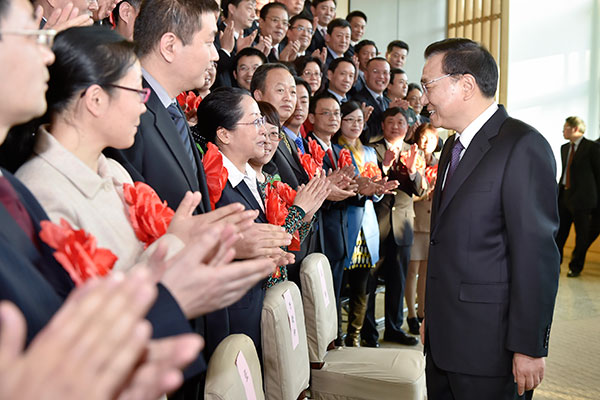Major government-funded projects will top the task list of national auditors in 2015, in a bid to make sure pro-growth policies are fully operated at the grassroots to support economic expansion, Premier Li Keqiang said after meeting auditors in Beijing on Dec 25.

Water conservancies, railways, urban infrastructure construction and the rebuilding of urban shanty towns make up the majority of the targeted fields, the country’s top auditor said.
Li said some of the government funding is “sleeping” in the bank account of local governments. Some of the funding might even become off-budget funds that could lead to embezzlement, he added.
“Next year will be critical to test to see if the Chinese economy can keep growing within a reasonable range,” Li said. “That will largely depend on our capability to faithfully carry out these policies and projects at local levels.”
Xu Yanqing, chief auditor of Balikun county, Northwest China’s Xinjiang Uygur autonomous region, said the auditing of major government-funded projects is an especially important task for her poverty-stricken hometown. Xu says that the auditing will make sure the poverty alleviation funding from the central government are well used.
The 25-year veteran auditor said her office has helped the local government retrieve nearly 100 million yuan ($16 million) of misused capital in the past two years. The annual fiscal income of the county is about 300 million yuan.
National audit authorities have found more than 2,300 clues to corruption cases and transferred them to judicial authorities in November, said Liu Jiayi, head of the National Audit Office, on Dec 25 at the annual auditing work conference in Beijing.
He said national auditors have recovered a total of 240 billion yuan by November, after reviewing about 100,000 government-funded organizations. More than 200 officials have been transferred to judicial and disciplinary authorities for suspected economic violations worth up to 30 billion yuan.
Liu said auditors will keep a closer eye on big projects such as water conservancy, railway, urban infrastructure construction and the rebuilding of urban shanty towns.
(Source: chinadaily.com.cn)
